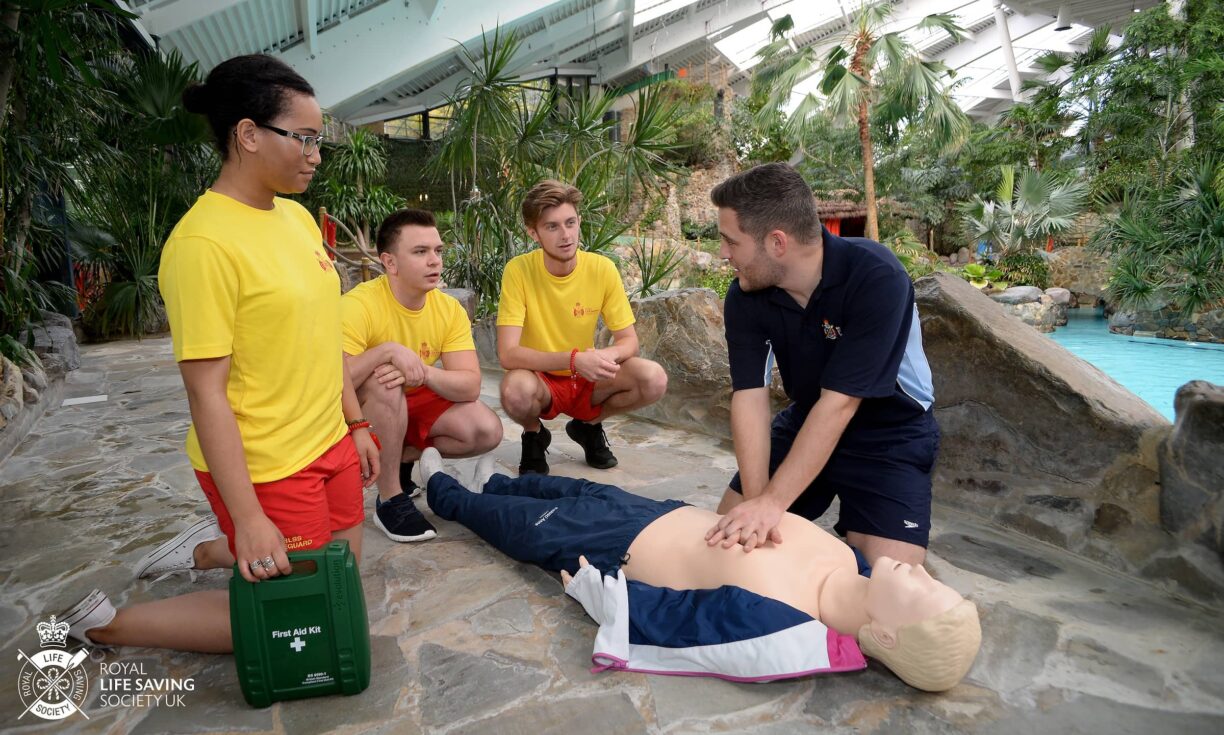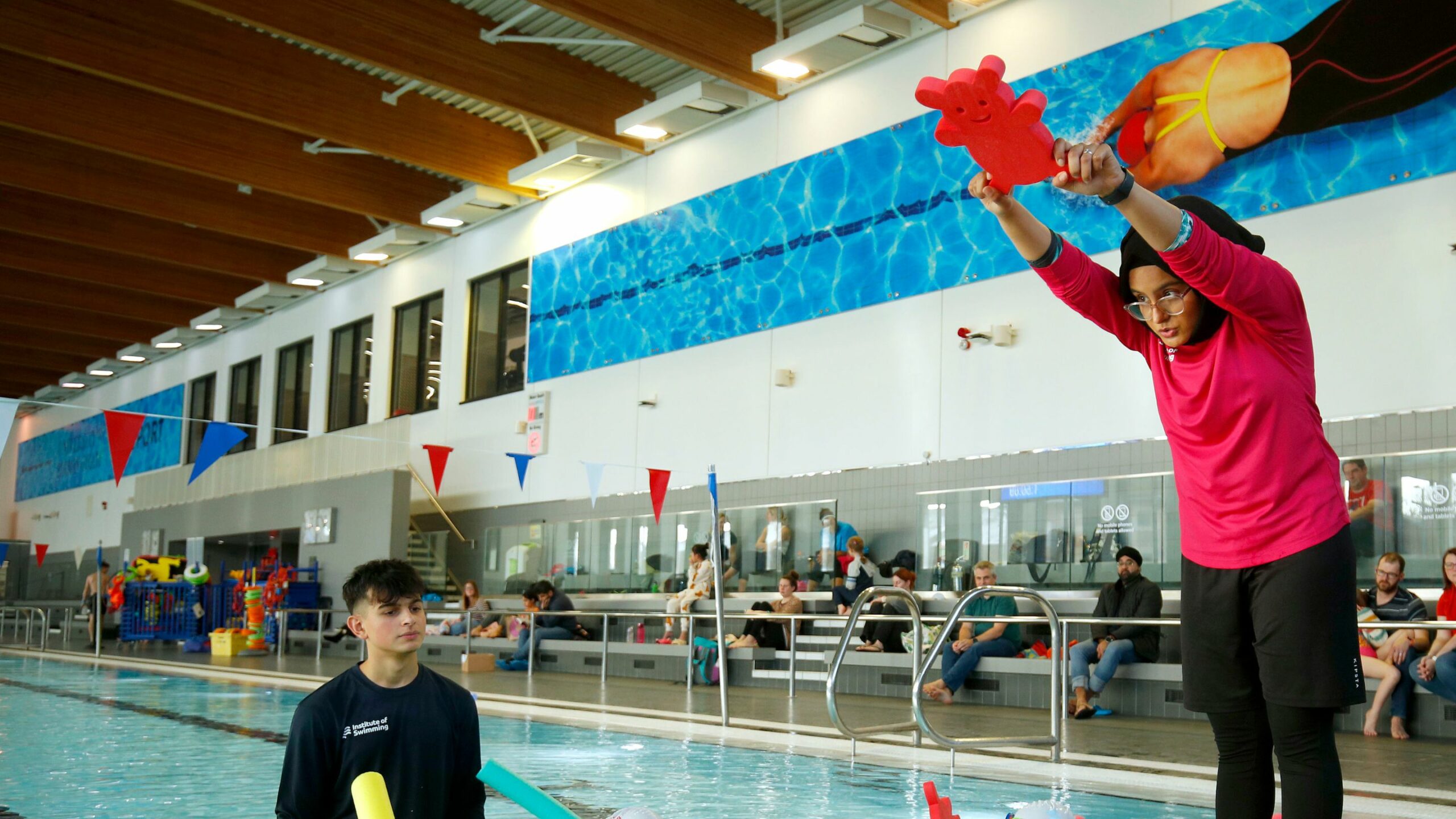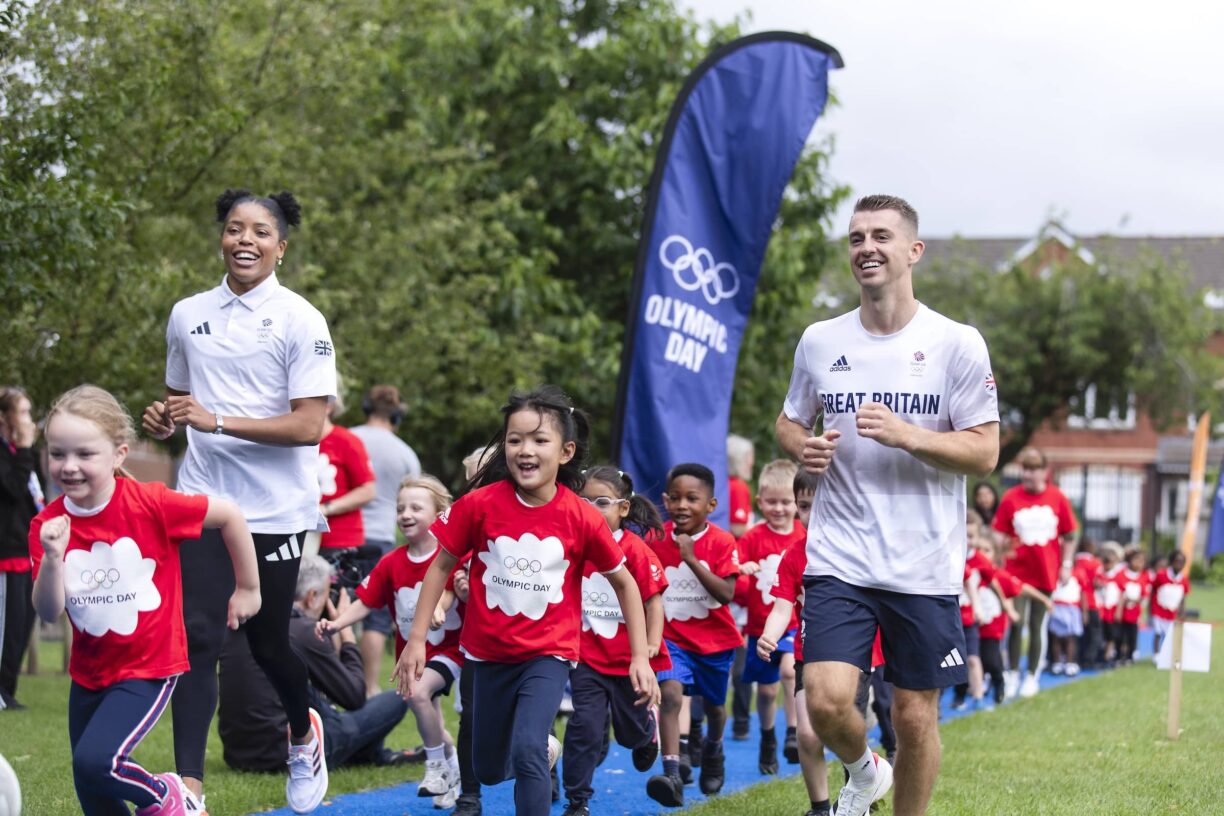The Institute of Swimming is defying national trends with a significant increase in its young workforce. In 2024, the number of swimming teachers aged 16-24 grew by 7%.
This stands in contrast to recent data from the Office for National Statistics (published 13th November 2024), which reported that youth unemployment (ages 16-24) rose sharply between July and September 2024, reaching 627,000 — an increase of 128,000 compared to the previous year. The youth unemployment rate also climbed to 14.8%, up from 12.1% the year before.
Rebecca Cox, Managing Director of the IoS, explains this positive trend for aquatics saying: “We understand young people want to work in secure environments, where they feel respected.
They want flexibility, they want high salaries and they want responsibility. Plus young people are interested in wellbeing. Working in aquatics offers it all.”
Whether as a lifeguard or a swimming teacher, working in aquatics has long been a popular choice for young people. In fact, in 2023 67% of the Institute of Swimming’s newly qualified swimming teachers and assistant swimming teachers were under the age of 25, and two-thirds of respondents to the Royal Life Saving Society UK’s (RLSS UK) 2023 Lifeguard Survey were enrolled in full or part-time education.
This comes as no surprise given the average hourly wage across England for a fully qualified swimming teacher is £16.52 and £11.20* for lifeguards. You can train to become a swimming teacher or a lifeguard from the age of just 16.
Jo Talbot, Interim CEO at RLSS UK says: “Our Level 3 National Pool Lifeguard Qualification (NPLQ) is now registered with the Universities and Colleges Admissions Service (UCAS), making the internationally recognised lifeguard course even more appealing to young people planning to go into further or higher education. It is worth eight UCAS Tariff points, meaning students who complete the NPLQ can include it in their UCAS application.
“We also know that working as a lifeguard gives young people life skills; not just how to save someone’s life. 93% of lifeguards told us that working as a lifeguard enhanced their communication skills and 89% said they increased their self-confidence. Lifeguarding has the ability to develop a young person for the future.”

With around half a million children in England missing out on learning to swim due to national staff shortages in the sector, the Institute of Swimming (IoS), the largest training provider of Swim England qualifications, and the RLSS UK are actively encouraging even more young people to get qualified to boost youth participation in aquatics further.
Cox says: “Contrary to what some may think, new recruits don’t need to come from a competitive or elite swimming background to pursue these roles.
With full training available for both positions, the industry offers secure work environments, flexible hours, no late-night shifts and employment opportunities locally and away at university during term times.
Moreover, young people can use these internationally recognised qualifications to work abroad during gap years and the long summer holidays.
Qualified swimming teachers and lifeguards are always in high demand, providing well-paid and rewarding job opportunities.
Many young people also enjoy the social side of working in aquatics, as it’s a great opportunity to meet other like-minded people and make new friends outside of school life.
One parent, whose 16-year-old daughter works as an Assistant Swimming Teacher, said: “Having a teenager can be a worrying stage for any parent, but working at her local swimming pool has given my daughter purpose, confidence and autonomy, which I hope she can take through to adult life; she takes her responsibilities very seriously.
“While she’s studying for her GCSEs it’s important the job works around her school life, and teaching swimming fits perfectly.
The hours are during the day, at the weekends or after school, and it’s well paid in comparison to other jobs available to teenagers.
I’d much prefer her to be at a leisure centre than working in a bar or shop. It’s also excellent for her UCAS applications and CV, as many of the skills she has learnt through delivering lessons are transferable.
“After her GCSE exams, she also plans to get her lifeguarding and her Level Two Swimming Teacher qualifications, as she wants to continue to work at the pool during her A-levels and become a part-time swimming teacher when she’s at university.”
Marie-Eve is currently in her second year of a physics degree at the University of Loughborough. After qualifying as an RLSS UK pool lifeguard in 2021, she is lifeguarding to support her studies.
She says: “Lifeguarding is an important role, and the National Pool Lifeguard Qualification (NPLQ) is a really valuable qualification.
Once you’ve got it, it’s easy to pick up shifts. Everywhere is looking for lifeguards and as soon as people know you’re qualified it’s not hard to find work. If you stay on top of your training, you can dip in and out of lifeguarding jobs whenever it suits you.
The pay is fantastic, especially for a student – I’ve never earned less than £15 per hour, which is a lot more than I could get in other part-time jobs. I’d recommend it as a way to earn money while at university.”





